Indigenous Governance Database
language preservation

In Lakota Nation, people are asking: Who does a language belong to?
From NPR's "Code Switch" podcast episode page:Many Lakota people agree: It's imperative to revitalize the Lakota language. But how exactly to do that is a matter of broader debate. Should Lakota be codified and standardized to make learning it easier? Or should the language stay as it always has…
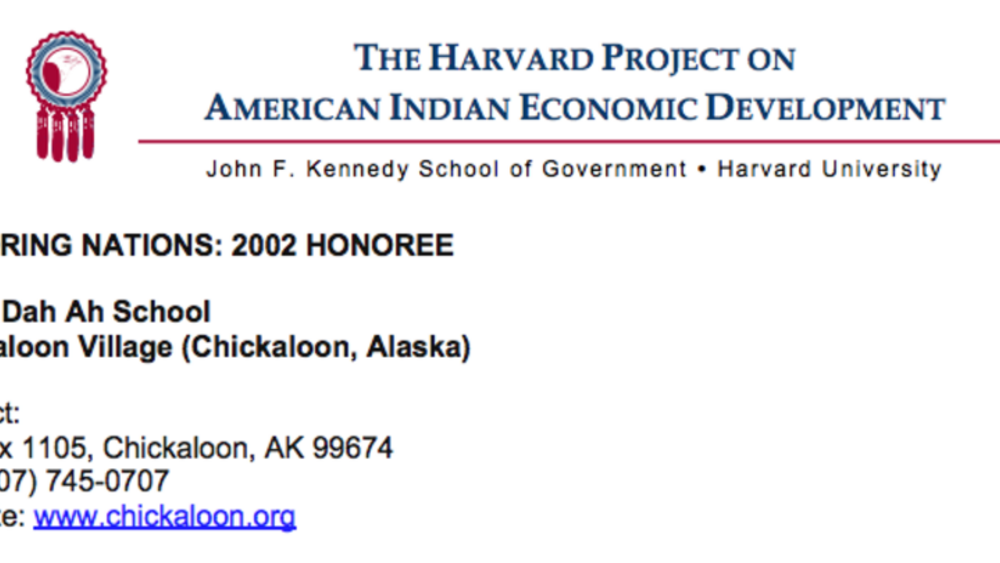
Chickaloon Village: Ya Ne Dah Ah School
Dedicated to giving community youth the skills necessary for functioning in a modern world while retaining and facilitating traditional knowledge and practices, the Ya Ne Dah Ah is Alaska’s only tribally owned and operated full-time primary school and day care facility. Located in a one-room…
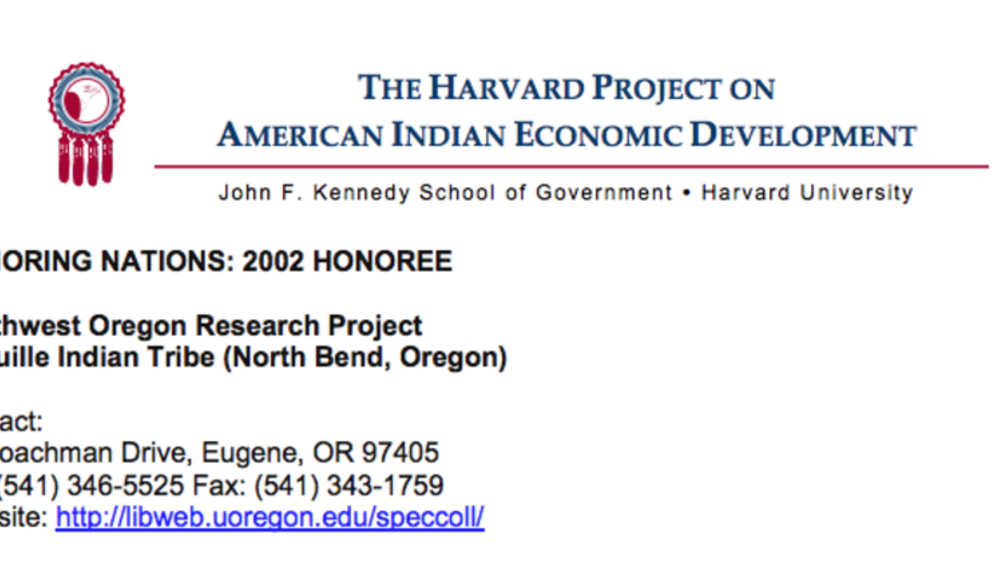
Coquille: Southwest Oregon Research Project (SWORP)
Driven by the belief that possessing historical documents and archival collections is essential for cultural self-determination, the Coquille Indian Tribe partnered with the University of Oregon and the Smithsonian Institution to launch the Southwest Oregon Research Project (SWORP) in 1995. Through…
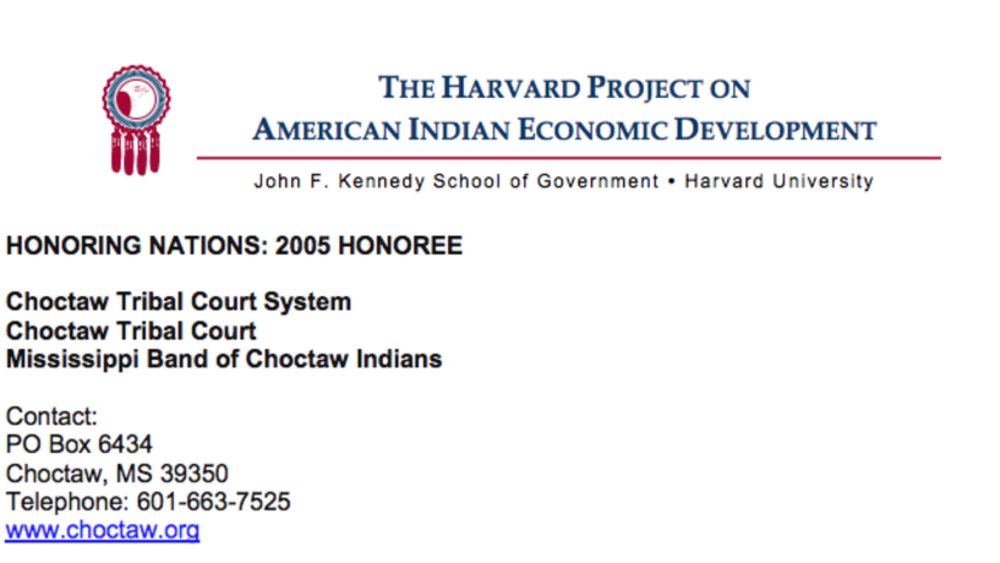
Choctaw Tribal Court System
Self-determination is the guiding principle behind all of the government initiatives undertaken by the Mississippi Band of Choctaw Indians. This nation has created a vibrant economy while investing resources into the preservation of Choctaw language and culture. At the heart of its success is its…
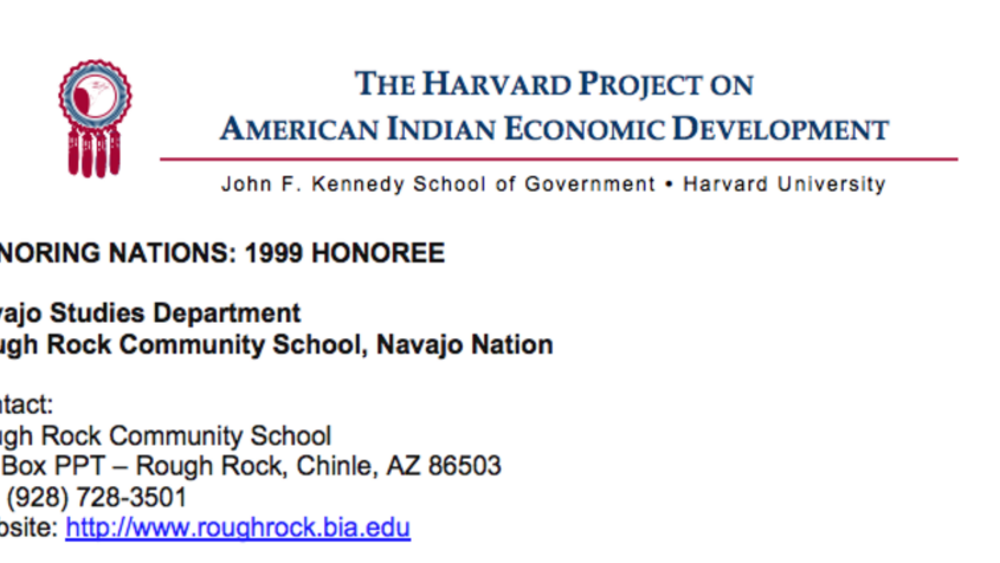
Navajo Studies Department
Created in 1966 as the first contract school in the country, Rough Rock is a Navajo-run institution that combines traditional Navajo learning with Western education. Its Navajo Studies curriculum, which addresses such subjects as culture, history, and language, was named by the Tribal Council as…
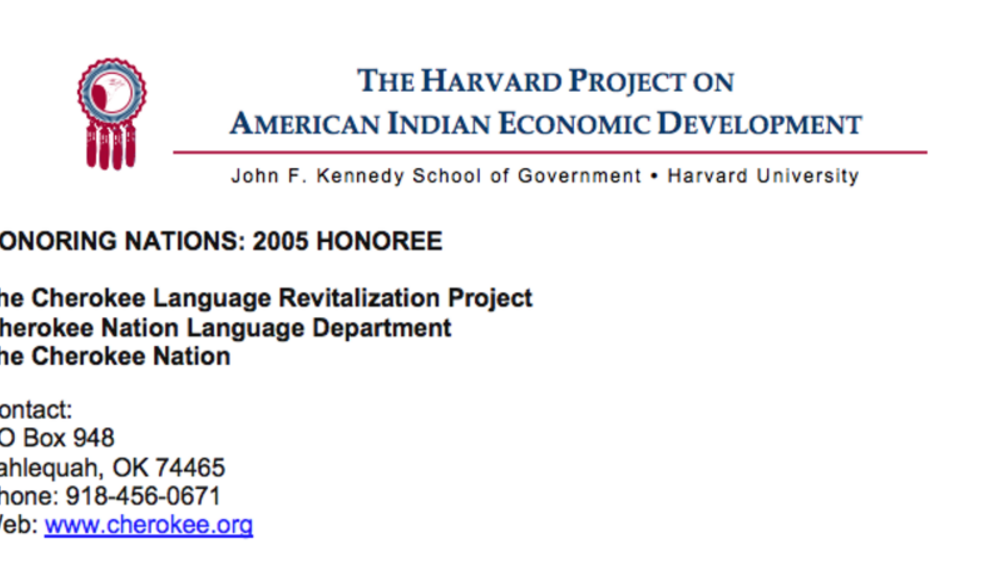
Cherokee Language Revitalization Project
In 2002, the Cherokee Nation carried out a survey of its population and found no fluent Cherokee speakers under the age of 40. The Cherokee Principal Chief declared a "state of emergency," and the Nation acted accordingly. With great focus and determination, it launched a multi-faceted initiative…
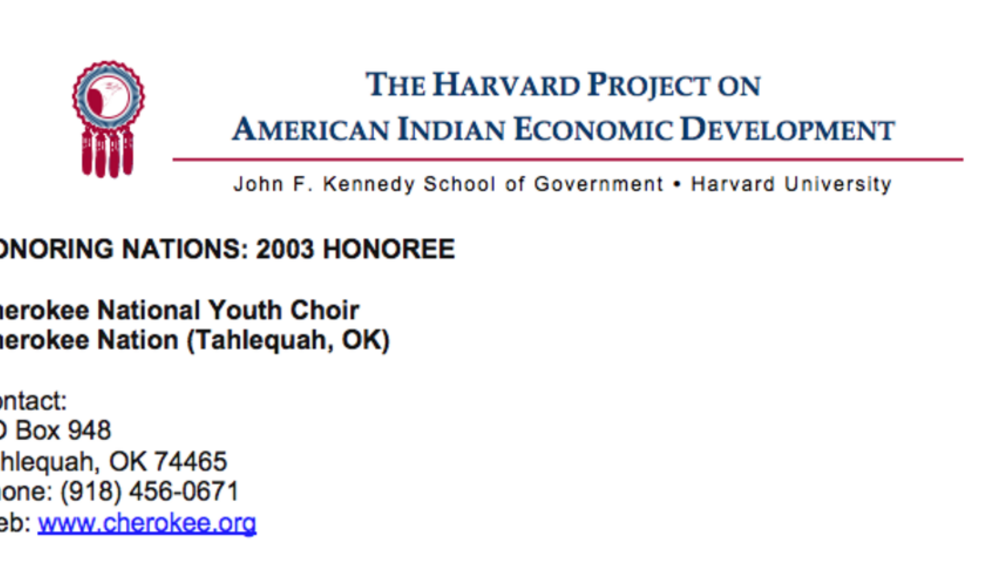
Cherokee National Youth Choir
The Youth Choir presents an innovative approach to promoting and encouraging the use of the endangered Cherokee language among its youth while also instilling Cherokee cultural pride. The award-winning choir — comprised of 40 young Cherokee ambassadors — has performed in venues across the US,…
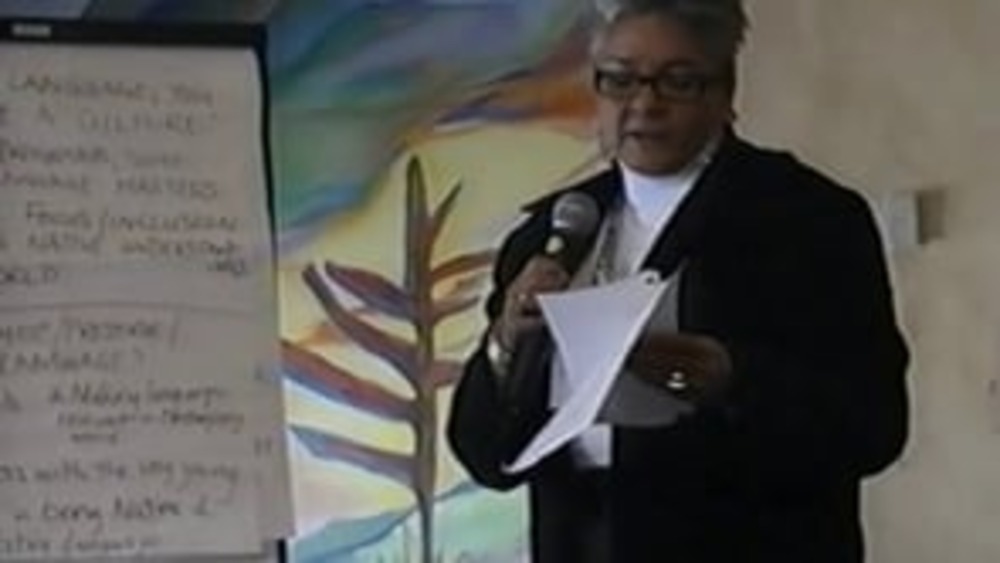
Honoring Nations: JoAnn Chase: Cultural Affairs
JoAnn Chase reports back to her fellow Honoring Nations sympoisum participants about the consensus she and her fellow cultural affairs breakout session participants reached concerning the need for Native nations to fully integrate culture into how they govern, and also to ensure that their…
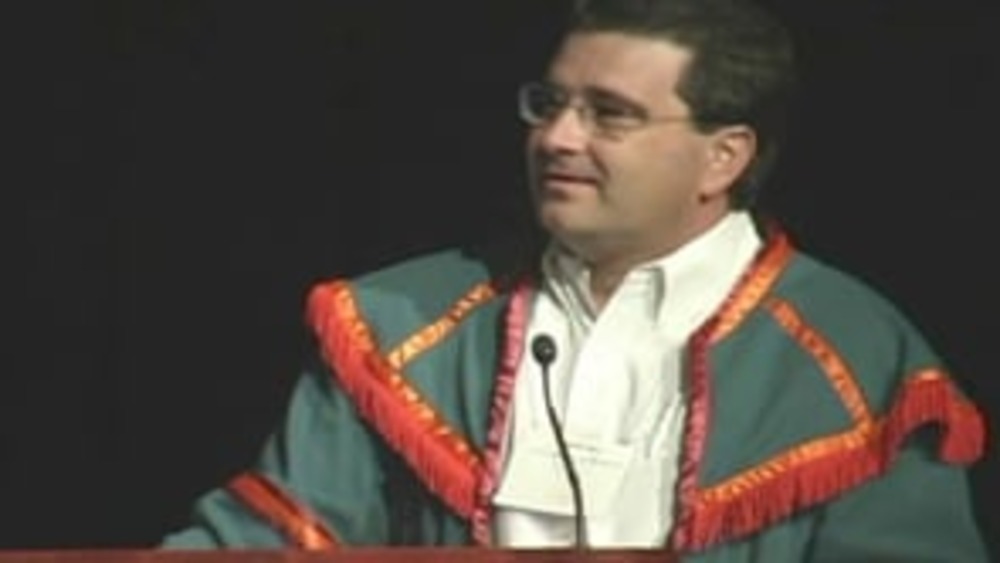
Honoring Nations: Dusty Delso: Cherokee Language Revitalization Project
Dusty Delso presents an overview of the Cherokee Language Revitalization Project to the Honoring Nations Board of Governors in conjunction with the 2005 Honoring Nations Awards.
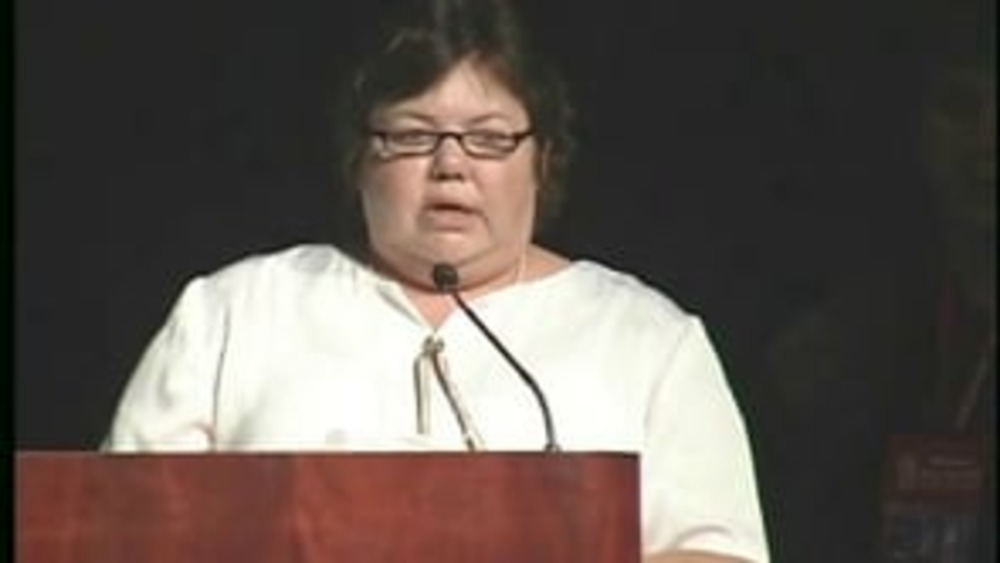
Honoring Nations: James Ransom and Elvera Sargent: The Akwesasne Freedom School
Elvera Sargent and James Ransom from the Sain Regis Mohawk Tribe present an overview of the Akwesasne Freedom School to the Honoring Nations Board of Governors in conjunction with the 2005 Honoring Nations Awards.
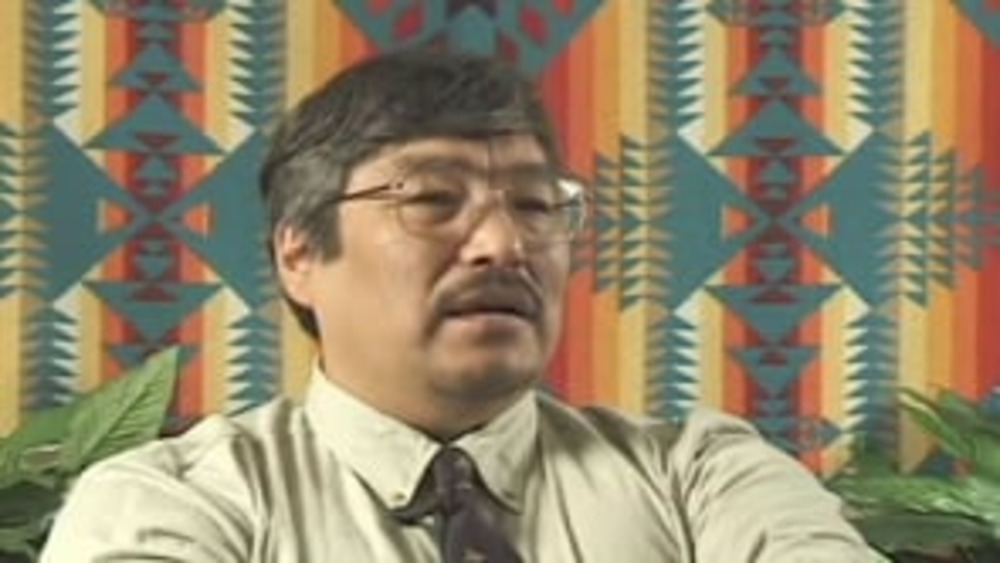
Great Tribal Leaders of Modern Times: Mike Williams
Produced by the Institute for Tribal Government at Portland State University in 2004, the landmark “Great Tribal Leaders of Modern Times” interview series presents the oral histories of contemporary leaders who have played instrumental roles in Native nations' struggles for sovereignty, self-…
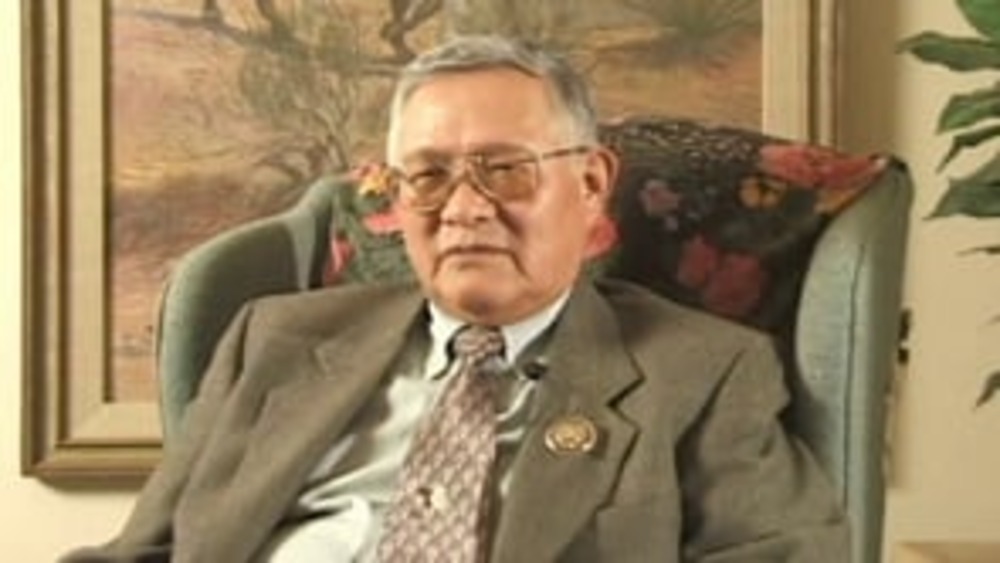
Great Tribal Leaders of Modern Times: Edward T. Begay
Produced by the Institute for Tribal Government at Portland State University in 2004, the landmark “Great Tribal Leaders of Modern Times” interview series presents the oral histories of contemporary leaders who have played instrumental roles in Native nations' struggles for sovereignty, self-…
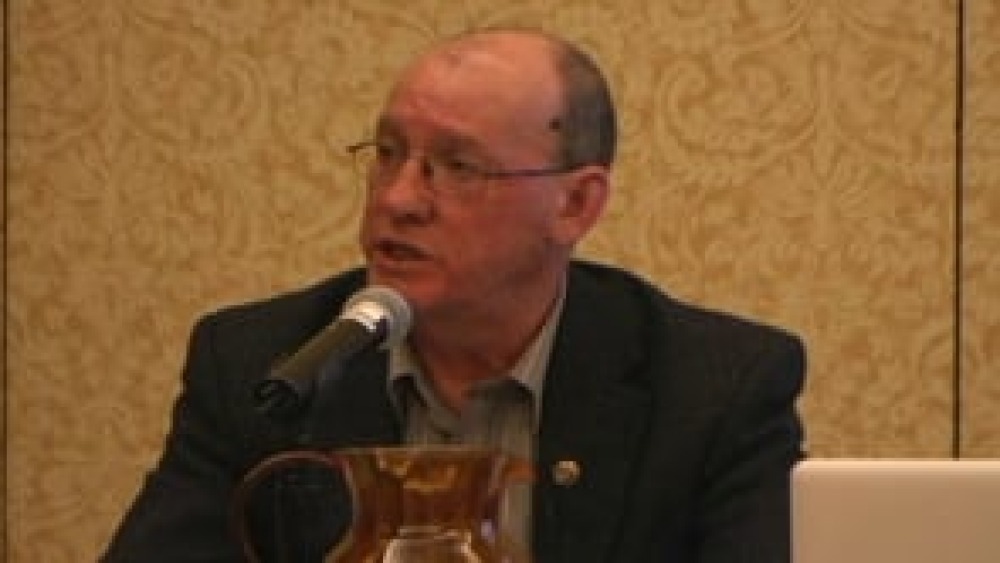
Terrance Paul: Building Sustainable Economies: Membertou First Nation
Chief Terrance Paul shares the keys to a sustainable economy through examples from the Membertou First Nation.
Honoring Nations: Elvera Sargent: The Akwesasne Freedom School
Elvera Sargent discusses the Akwesasne Freedom School and the role it plays in the cultural identity of each generation that goes through the curriculum.
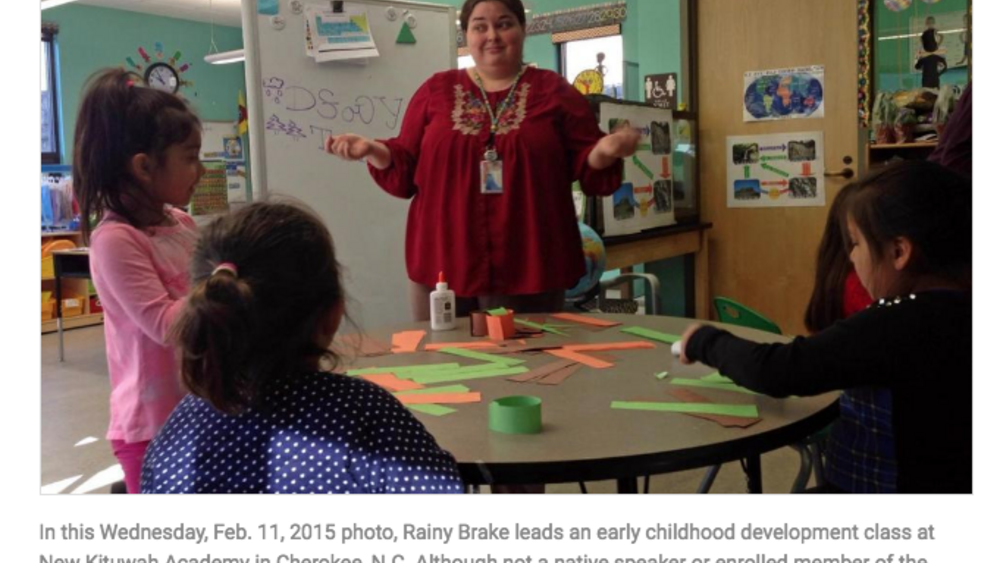
Hopes of preserving Cherokee language rest with children
Kevin Tafoya grew up hearing Cherokee all around him – his mother, a grandmother and grandfather, aunts and an uncle all spoke the language that now is teetering on the edge of extinction. Yet his mother purposely didn’t teach him. “She told us she had a hard time in school transitioning from…
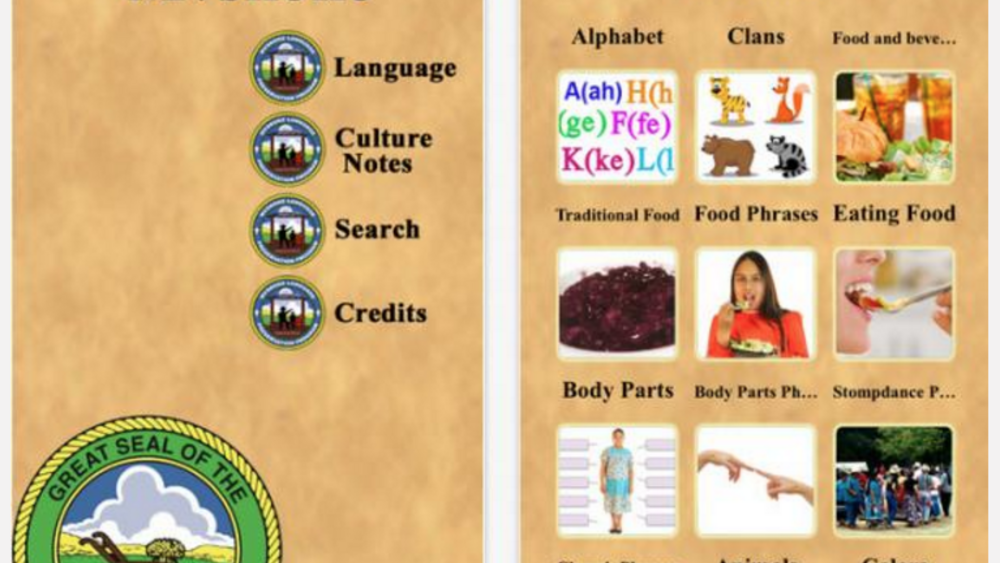
Muscogee (Creek) Nation Launches App to Help Preserve Language
In an effort to preserve the Muscogee (Creek) Nation language, the nation has developed a mobile app as a way for citizens to learn the language more easily. The Mvskoke (the traditional spelling of Muscogee) Language App is available free in the Apple store for iPhones and iPads, as well the…
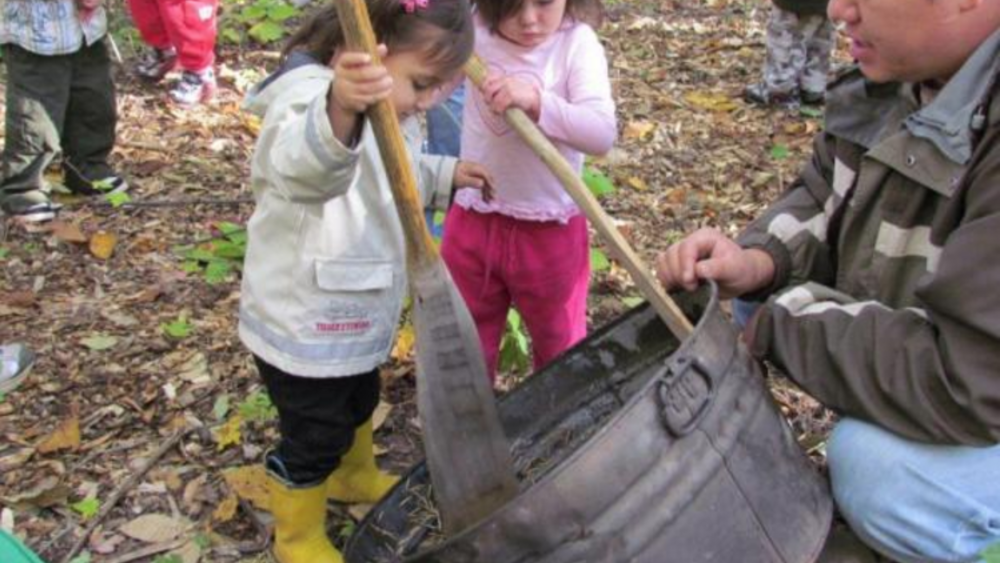
Preserving Culture: 6 Early Childhood Language Immersion Programs
Language immersion schools have proved to be enormously beneficial for young learners’ academics. To quote Dr. Janine Pease-Pretty on Top, Crow, founding president of Little Big Horn College, “Solid data from the Navajo, Blackfeet and Assiniboine immersion schools experience indicates that the…
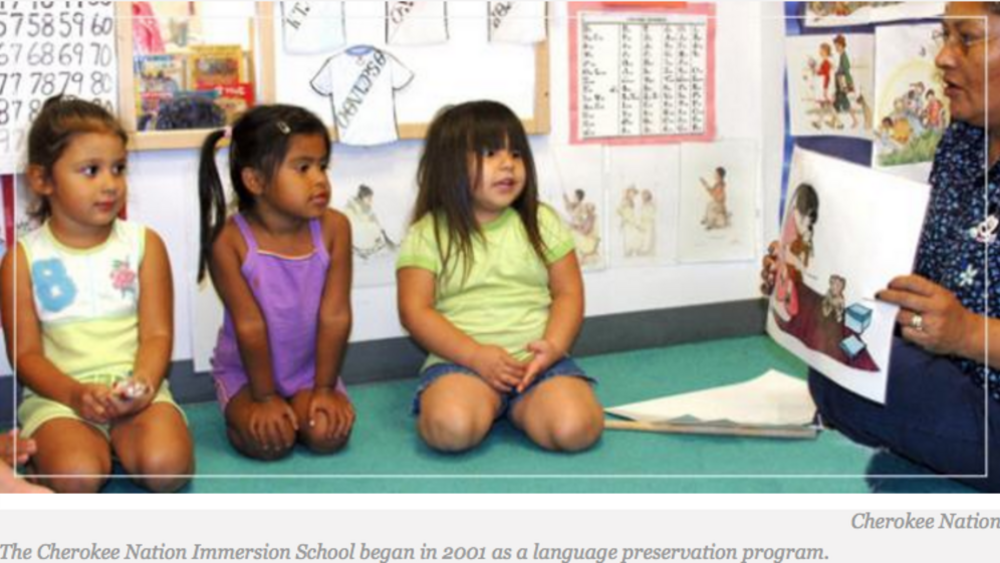
Teaching the Whole Child: Language Immersion and Student Achievement
As Congress considers two bills to support Native American language immersion, including the Native Language Immersion Student Achievement Act, it is time to take stock. What does research say about the impact of Native-language immersion on Native students’ academic achievement? We now have 30…
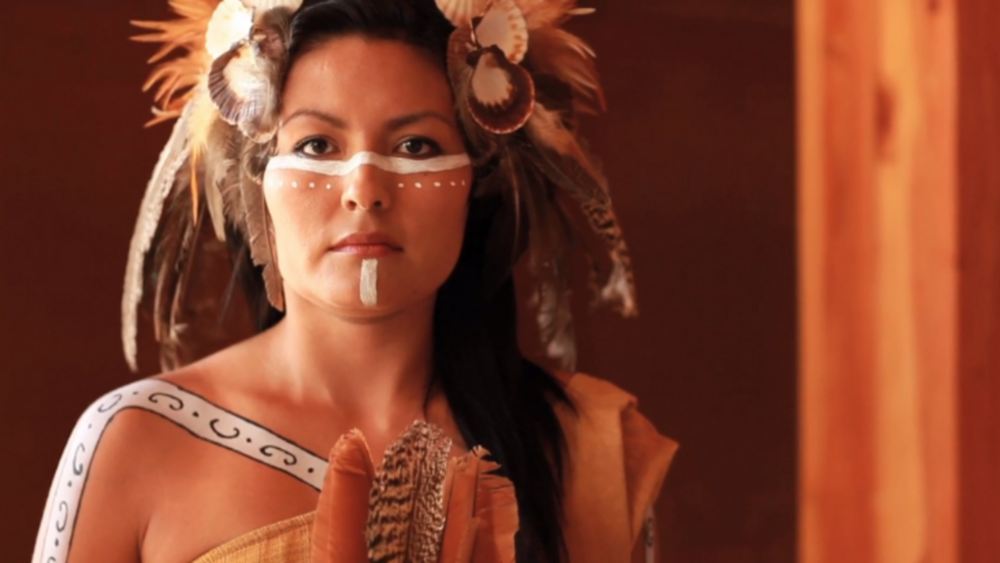
Chickasaw Nation: The Fight to Save a Dying Native American Language
A 50,000-year-old indigenous Native American tribe that has weathered the conquistadors, numerous wars with the Europeans, the American Revolution and the Civil War is now fighting to preserve its language and culture by embracing modern technology. There are 6,000 languages spoken in the world…
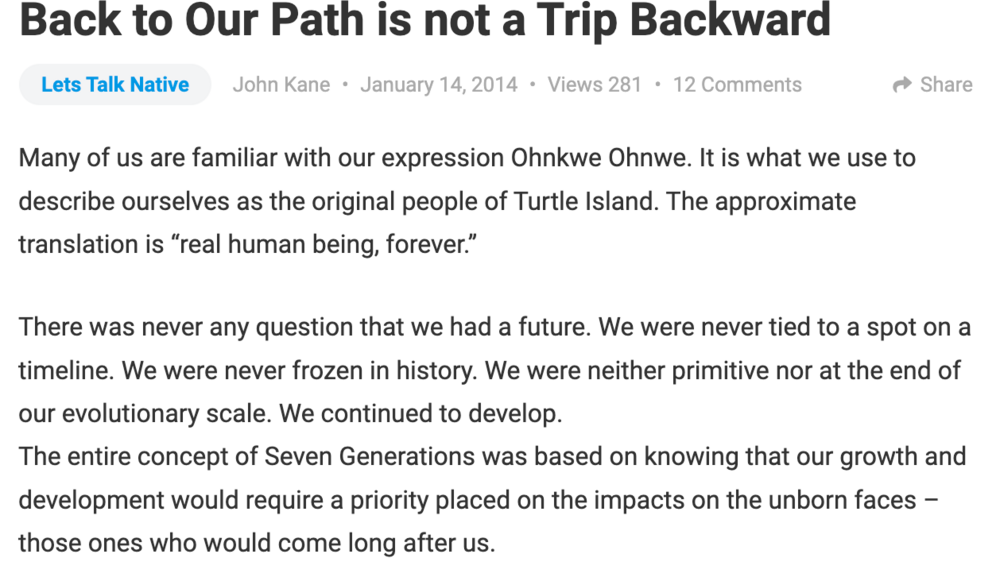
Back to Our Path is not a Trip Backward
Many of us are familiar with our expression Ohnkwe Ohnwe. It is what we use to describe ourselves as the original people of Turtle Island. The approximate translation is “real human being, forever.” There was never any question that we had a future. We were never tied to a spot on a timeline. We…
